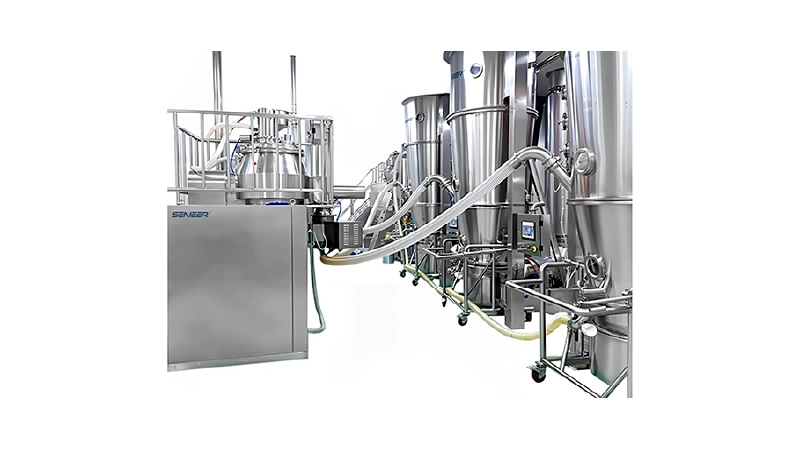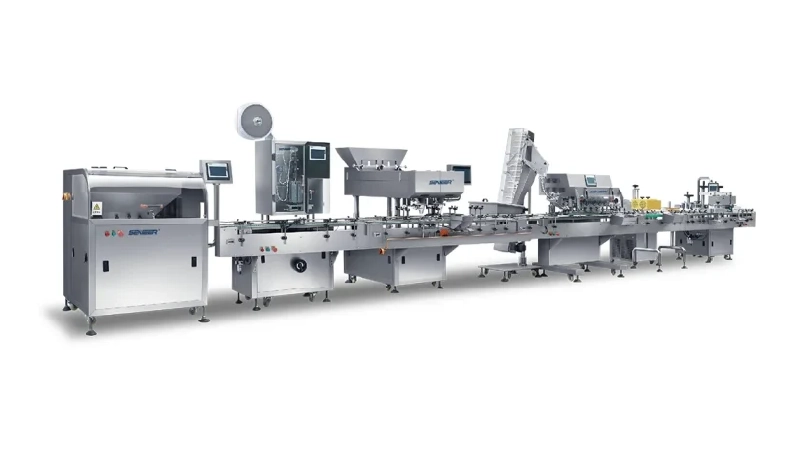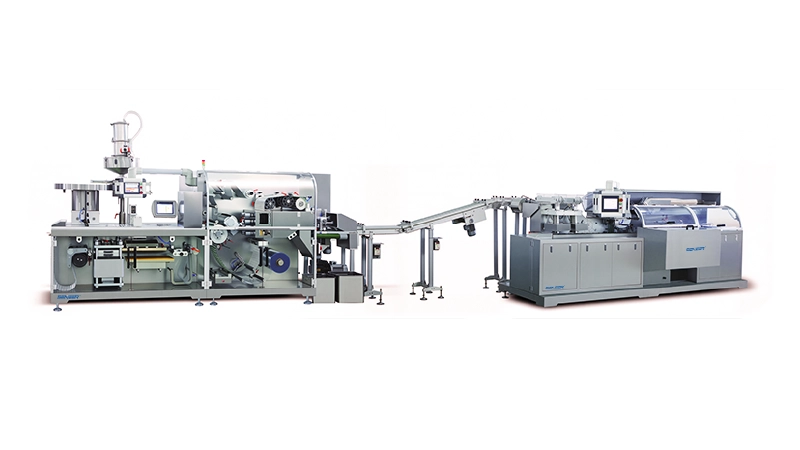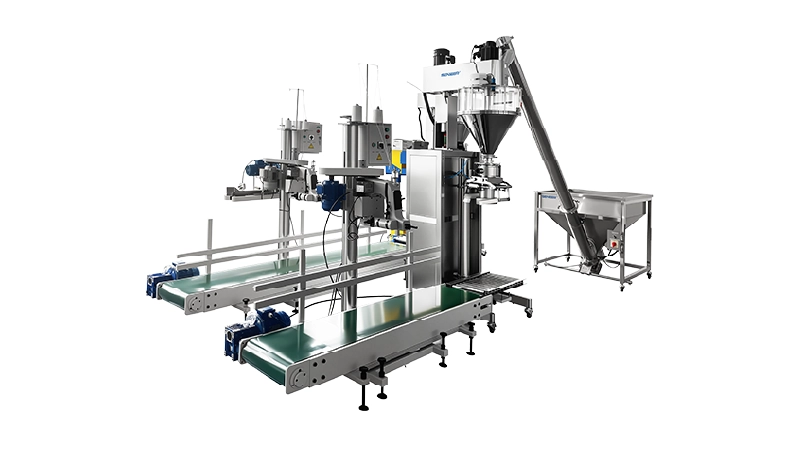Pharmaceutical manufacturing has become an increasingly complex and regulated industry in recent years. As the demand for high-quality drugs and medicines continues to rise, the need for efficient and reliable manufacturing machines has become paramount. In this blog, we will discuss the top trends in pharmaceutical manufacturing machines that have emerged in recent years.
1.Automation and Robotics
One of the most significant trends in pharmaceutical manufacturing is the use of automation and robotics. Automation and robotics have been widely adopted in the industry due to their ability to streamline processes, reduce errors, and increase efficiency. These machines can handle repetitive tasks such as packaging, labeling, and inspection, freeing up human workers to focus on more complex tasks.
2.Modular and Flexible Manufacturing
Another trend in pharmaceutical manufacturing machines is the move towards modular and flexible manufacturing. Modular manufacturing refers to the use of interchangeable components and systems that can be easily reconfigured to produce different products. This allows manufacturers to quickly adjust their production lines to meet changing market demands. Flexible manufacturing refers to the ability to produce small batch sizes efficiently, allowing manufacturers to respond quickly to niche markets and emerging trends.
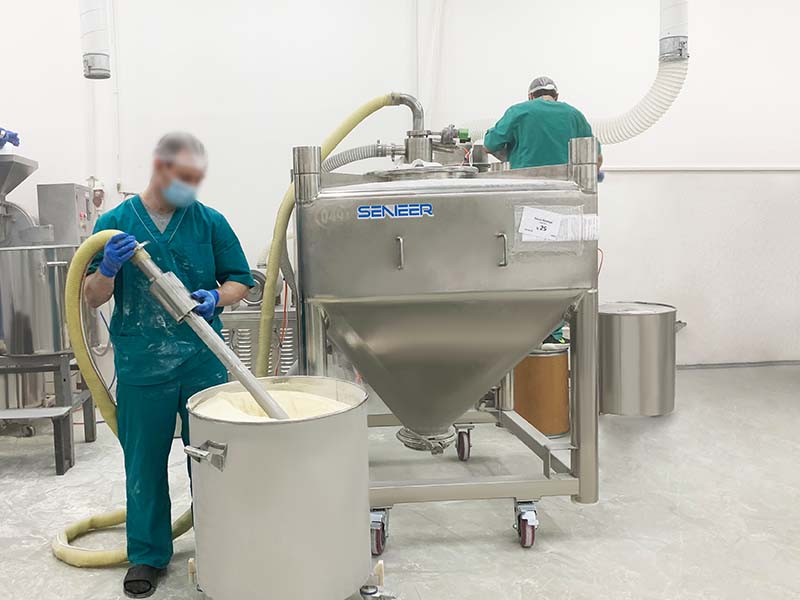
3.Continuous Manufacturing
Continuous manufacturing is another trend that has gained traction in recent years. In contrast to traditional batch manufacturing, which involves producing a set amount of a product at a time, continuous manufacturing involves a continuous flow of raw materials, intermediates, and finished products. This results in a more consistent and efficient production process, reducing waste and increasing yields.
4.Quality by Design (QbD)
Quality by Design (QbD) is a process that focuses on building quality into the product from the beginning of the manufacturing process. QbD involves designing a manufacturing process that is capable of consistently producing a high-quality product. This is achieved through the use of statistical process control, process validation, and risk assessment. QbD is becoming increasingly important as regulatory agencies are placing greater emphasis on quality control and assurance.
5.Single-Use Technology
Single-use technology is another trend that has emerged in recent years. Single-use technology involves the use of disposable components, such as bags, filters, and tubing, in the manufacturing process. This eliminates the need for cleaning and sterilization of equipment, reducing the risk of cross-contamination and improving efficiency. Single-use technology is also more environmentally friendly as it reduces water and energy usage.
6.Advanced Analytics
Advanced analytics is another trend that is transforming pharmaceutical manufacturing. Advanced analytics refers to the use of data analytics and machine learning to monitor and optimize the manufacturing process. This allows manufacturers to identify and address issues in real-time, reducing downtime and improving yields. Advanced analytics can also help manufacturers optimize their supply chains, improving efficiency and reducing costs.
7.Digital Twins
Digital twins are virtual replicas of physical assets, such as manufacturing equipment, that are used to simulate and optimize their performance. Digital twins are becoming increasingly popular in pharmaceutical manufacturing as they can help identify and resolve potential issues before they occur. This can improve efficiency, reduce downtime, and improve product quality.
8.Augmented Reality (AR)
Augmented reality is another trend that is gaining traction in pharmaceutical manufacturing. AR involves overlaying digital information onto the physical world, providing workers with real-time information and guidance. This can be used to train workers, monitor processes, and identify and resolve issues in real-time. AR can also be used to improve quality control and assurance by providing workers with real-time feedback on their performance.
9.Internet of Things (IoT)
The Internet of Things (IoT) is another trend that is transforming pharmaceutical manufacturing. IoT involves connecting devices and equipment to the internet, allowing them to communicate with each other and share data. This can be used to monitor and optimize the manufacturing process in real-time, improving efficiency, reducing downtime, and improving product quality.
10.Artificial Intelligence (AI)
Artificial intelligence (AI) is the use of computer algorithms to perform tasks that typically require human intelligence, such as learning, reasoning, and decision-making. In pharmaceutical manufacturing, AI can be used to optimize the manufacturing process, reduce waste, and improve product quality. AI can also be used to analyze vast amounts of data to identify patterns and insights that can help manufacturers make better decisions.
11.3D Printing
3D printing is a rapidly growing trend in pharmaceutical manufacturing. 3D printing involves the use of a computer-aided design (CAD) model to produce a physical object by adding layers of material. In pharmaceutical manufacturing, 3D printing can be used to produce customized medicines with precise dosages and formulations. This can improve patient outcomes and reduce waste.
12.Nanotechnology
Nanotechnology involves the manipulation of matter at the atomic and molecular level. In pharmaceutical manufacturing, nanotechnology can be used to improve drug delivery and efficacy. For example, nanoparticles can be used to deliver drugs directly to cancer cells, reducing side effects and improving treatment outcomes. Nanotechnology can also be used to improve drug solubility, increasing bioavailability and reducing dosages.
13.Blockchain
Blockchain is a digital ledger technology that allows for secure and transparent transactions. In pharmaceutical manufacturing, blockchain can be used to track the supply chain, ensuring the integrity and safety of products. Blockchain can also be used to improve regulatory compliance, reduce counterfeiting, and improve traceability.
14.Personalized Medicine
Personalized medicine involves the customization of medical treatments based on an individual’s genetics, environment, and lifestyle. In pharmaceutical manufacturing, personalized medicine can be produced using advanced technologies such as 3D printing and nanotechnology. This can improve patient outcomes and reduce the risk of adverse reactions.
15.Green Manufacturing
Green manufacturing refers to the use of sustainable and environmentally friendly practices in the manufacturing process. In pharmaceutical manufacturing, green manufacturing can be used to reduce waste, energy usage, and carbon emissions. This can improve sustainability, reduce costs, and improve public perception of the industry.
In conclusion, pharmaceutical manufacturing machines are constantly evolving to meet the growing demands of the industry. Automation, modular and flexible manufacturing, continuous manufacturing, QbD, single-use technology, advanced analytics, digital twins, AR, IoT, AI, 3D printing, nanotechnology, blockchain, personalized medicine, and green manufacturing are just some of the trends that are transforming the industry. Manufacturers who are able to adapt and embrace these trends will be better positioned to meet the challenges of the future and continue to deliver high-quality medicines to patients around the world.
Senieer is a leading provider of pharmaceutical machinery, offering a wide range of equipment and solutions for the pharmaceutical, nutraceutical, and chemical industries. Their commitment to quality, innovation, and customer service has helped them become a trusted partner for pharmaceutical companies worldwide. With their advanced technologies and strict quality control system.
Why should you go with SENIEER?
Senieer, a global producer and supplier of pharmaceutical equipment such as tablet coating machines, provides a ONE-STOP SOLUTION. Senieer is the top global partner for companies in the pharmaceutical, food, chemical, and cosmetics industries. In China, Senieer has mostly concentrated on solid dosage forms for over 34 years. Integrated process solutions that are dependable. We manufacture equipment that meets worldwide standards such as GMP, cGMP, and the US FDA.
Senieer technical team members improve one-stop solution services for large-scale projects, from consultation through design. We completely understand your strategy and needs for resolving any of your difficulties.






